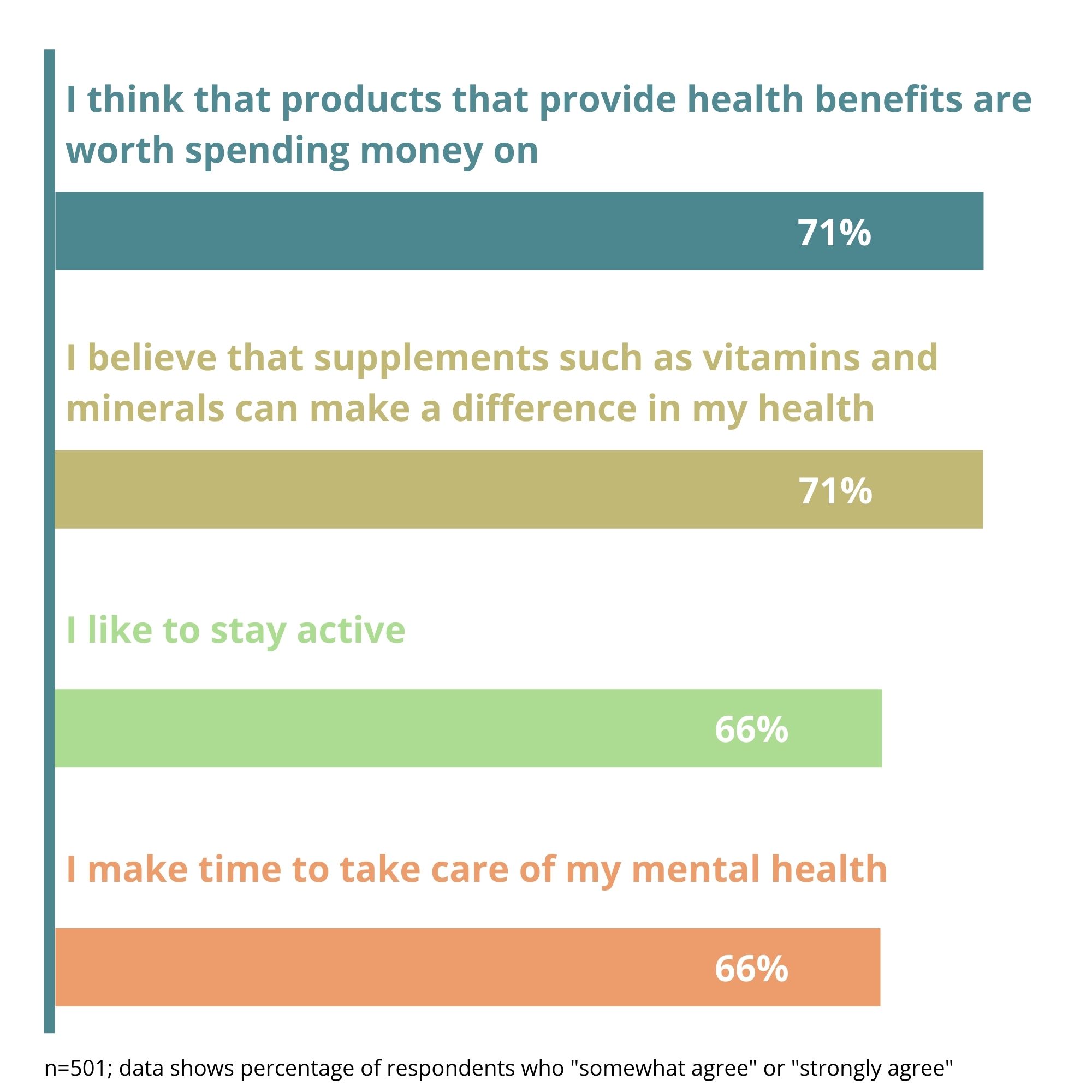Gen Z is the up-and-coming market for many industries throughout the world.
They’re young trendsetters with a completely separate set of values from the generations that came before them, and every single one of them is a “digital native” — someone born into a world where the Internet already exists.
Aged 9 through 24, teens and adults in Gen Z move quickly, live passionately, and increasingly have the finances to make a significant change in any market segment.
This includes health and wellness.
But what does Gen Z believe about health and wellness? How are their generation’s values reflected in their interests in living a healthy lifestyle?
We conducted our own research to discover some answers to these questions. Our recent study, entitled Generational Shopper Insights for Your Omnichannel Marketing Strategy, allowed us to see what each generation says about different topics, from Gen Z all the way up through Boomers.
This is also where we discovered the four wellness beliefs that help define Gen Z.
- Feel products that offer health benefits are worth more
- Believe that supplements can make a difference in health
- Feel regular activity is important
- Understand that mental health requires dedicated time
Now, we’ll get into some of the details of each data point.
1. Products with Health Benefits Are Worth More
Gen Z’s first most popular belief — though only by a slim margin — is that products with health benefits can make a valuable impact on their lives and are worth paying more for.
With the majority agreeing with this statement, this positions Gen Z as prime long-term buyers of a variety of different health and wellness brands.
Products with health benefits can include a huge range of items, ranging from health-conscious food to high-tech step-trackers. It may even include apps that help someone track their weight, maintain a diet, or accurately report on their body mass index (BMI).
2. Supplements Can Make a Difference in Health
In addition, almost three-quarters feel that supplements can make a difference to their health.
This point provides valuable insight into the different products that Gen Z prioritizes when they think about health and wellness.
This indicates that the supplement market has a huge opportunity to reach Gen Z shoppers as they begin to earn more income. It’s also possible for the supplement market to earn more while Gen Z is young, as 9 out of 10 parents of Gen Z children say that their children influence family purchases.
3. Regular Activity Is Important
In addition to products and supplements that help Gen Z stay healthy, 6 in 10 people in Gen Z said that it’s important to them to keep active.
This underlines the dramatic importance of a healthy lifestyle to Gen Z as a whole, even when they’re in their youth. But they may not always exercise at gyms in the post-COVID era.
In fact, 60% of Gen Z says they exercise regularly, according to data published by PureWow. This is often done as a part of the “walking workout” that has become trendy among the generation.
It’s also important to note that motivations for exercise may extend to other health benefits aside from physical well-being. While physical health can certainly be a reason to exercise in general, it’s also true that regular activity goes beyond physical well-being and extends to mental wellness.
This is especially important to note for our final point about Gen Z’s beliefs in wellness.
4. Mental Health Requires Dedicated Time
Lastly, 66% of Gen Z said they make time for their mental health.
This plays an important role in our research because it speaks to how Gen Z feels about mental health and wellness, as opposed to physical.
It’s also possible that those who disagreed with the statement still understand the importance of mental health, but don’t “make time” for it themselves.
Either way, the importance of mental health in Gen Z shows that wellness brands have opportunities to make meaningful connections and help their young customers improve their lives.
Some companies have already started initiatives around this idea during May’s Mental Health Awareness Month. For example, Jeni’s ice cream released a new flavor that is themed around children’s mental health, and its proceeds help support children’s mental health initiatives.
Other brands that follow suit could also find success by honing their brand’s initiatives and messaging to more specifically cater to this priority in Gen Z.
Learn More about What Gen Z Wants from Brands
What else does Gen Z want in health and wellness from brands like yours? How do you know that you’re making the right moves to engage with them? We have more answers in our omnichannel marketing report.




